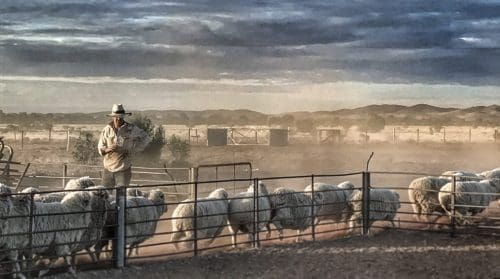Latest listings on AgJobs Central
- Beef livestock procurement, Qld (Coles Supermarkets)
- Industry development and innovation manager (Rimfire Resources client)
- National sales manager (Agricultural Appointments client)
- Service manager, Cockburn Central WA (Lucas Group client)
- Senior farm hand – Cropping Focus, Clermont Qld (DroverAg client)
- Technical sales specialist – Granular Products, Rockhampton Qld (DroverAg client)
- Farm manager – Winter and Summer cropping, Monto Qld (DroverAg client)
- Assistant manager broadacre cropping – Western Downs Qld (DroverAg client)
- Operations manager, contract harvesting and cropping – Central Qld (DroverAg client)
- Sales agronomist, Brisbane Qld (Rimfire Resources client)
- Livestock procurement manager – Vic or SA (Blackbook client)
- Assistant plant manager, Townsville Qld (JBS Australia)
Click here to access these and other exciting meat and livestock supply chain jobs currently listed on AgJobs Central.

ONE in four Australian employees now work on a casual basis, and the trend is taking hold as much in agriculture as in other business sectors.
Managing casual workforces can sometime be a challenge for business owners not familiar with the process, but there are also benefits to both parties.
It has to start right from the beginning in recruitment and HR involvement stages. The recruitment process is the number one factor where it can make a difference as to how long your causal workforce will stay. The keys are in provide a safe, fun and rewarding work environment.
Your business can have great marketing, a great brand, great product, great design and great equipment – but if people don’t to want to work for your company – that’s the biggest risk you can mitigate against.
The ups and downs of a casual workforce
If you’re an agribusiness employer, it’s great to have a casual workforce that’s on call without you having to pay when they’re not needed – particularly when it comes to filling seasonal shifts, fencing work or peak activity times like mustering.
Other benefits of casual workforces include the ability to recruit or downsize rapidly, as well as having a ready-made talent pool to choose from should you wish to employ permanent workers.
There are, of course, downsides to employing casual staff in the bush. For instance, your casual staff members may not be available when you need them, and on occasion may lack the engagement demonstrated by permanent staff. What’s more, if your staff members are not permanent, there is no guarantee that they won’t seek work elsewhere.
Lining up for jobs
Like every role, there are good and not-so-good casual staff. At the end of the day if you have demonstrated your company culture and values, you should be attracting the right people from the very start.
If all companies strive to be an employer of choice in their chosen fields, they should never need to advertise for staff, with potential employees calling directly, or being referred by existing staff every day of the week.
A rewarding employer
In return for the great job your casual workforce does for your business, you should offer them an attractive wage, growth and training opportunities, and where appropriate, a career path potentially to permanent role.
If you are recruiting a younger casual workforce consider looking into scholarships for vocational programs or TAFE courses to upskill your workforce.
The interview and on-boarding process
When it comes to interviewing potential candidates, keep it simple. The interview process should be deliberately informal and revolve around a two-way discussion about your company’s values, culture and goals. It gives applicants a sense about what your company is like and how they will fit in.
Once hired, ensure your newest staff members understand the big picture. It gives them a vested interest in the success of the business, allowing them to share this information with customers and establish confidence in the brand.
Tools of the trade
The best tool for managing casual workers is simply taking an interest in them.
Especially if you are the business owner or senior manager of the business, taking two minutes to ask someone how they are and how their family is and having that conversation around their personal circumstances really pays off. And that can be way more important that the fancy technology or remuneration on offer.
If you have a casual workforce dispersed across multiple sites or states, and some businesses in the beef industry do, consider introducing a form of group communication to get everyone involved on a more general level with updates and photos from your respected sites. Facebook Messenger, WhatsApp are free apps you can use to create groups and install from to your phone so you never miss a moment to update the wider team.
Source: Meat Processors Pty Ltd – Managed Workforce


HAVE YOUR SAY